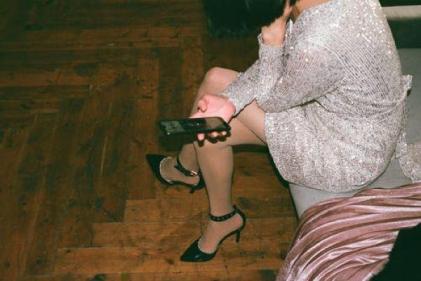One of the reasons we love reading, is because we love finding entertaining ways to learn things. There’s nothing better than a fiction that makes you really think, challenges your ideas and blows your mind with an amazing story along the way.
These feminist-fiction reads are great for fans of the likes of ‘The Handmaid’s Tale’, ‘The Yellow Wallpaper’, or Louise O’Neill’s ‘Only Ever Yours’. Dystopias, creepy short stories, and historical fictions, these books give us compelling characterization and gripping plots, but they also open our minds to the challenges that women face and the hold up dark mirrors to the world we currently live in. Have a browse of our top reads for feminist fiction fans!
‘Widowland’ by C.J. Carey (Quercus)
To control the past, they edited history. To control the future, they edited literature.
London, 1953, Coronation year - but not the Coronation of Elizabeth II.
Thirteen years have passed since a Grand Alliance between Great Britain and Germany was formalized. George VI and his family have been murdered and Edward VIII rules as King. Yet, in practice, all power is vested in Alfred Rosenberg, Britain's Protector. Britain is the perfect petri dish for the ideal society, and the role and status of women is Roseberg's particular interest. Under the Rosenberg regulations women are divided into a number of castes according to age, heritage, reproductive status and physical characteristics.
Outbreaks of insurgency have been seen across the country. Graffiti has been daubed on public buildings. Disturbingly, the graffiti is made up of lines from famous works, subversive lines from the voices of women. Suspicion has fallen on Widowland, the run-down slums inhabited by childless women over fifty, the lowest caste.
This book blew my mind. It was so clever, and so well thought out - the world building alone in this book is almost flawless. We’re so fascinated following Rose through her daily routine that we don’t realise we could almost be sitting in on a history lecture, so detailed and researched is the life she constructs.
This is simultaneously a book for people who love books and literature and also one that will make book lovers (especially classics fans) cringe. Rose’s job in the Ministry of Culture is to be a literature ‘corrector’, rewriting classics and schoolbooks to be in line with Alliance ideology. That means no subversive or rebellious women, no thinking for one’s self, and no resistance to or questioning of authority. Pride and Prejudice’s Lizzie Bennett becomes meek and compliant under Rose’s pen, Jo March of Little Women is contented with her lot, learning her lesson that should women not write or strive for higher than their position.
‘Madam’ by Phoebe Wynne (Quercus)
For 150 years, high above rocky Scottish cliffs, Caldonbrae Hall has sat untouched, a beacon of excellence in an old ancestral castle. A boarding school for girls, it promises that the young women lucky enough to be admitted will emerge “resilient and ready to serve society.”
Into its illustrious midst steps Rose Christie: a 26-year-old Classics teacher, Caldonbrae’s new head of the department, and the first hire for the school in over a decade. At first, Rose is overwhelmed to be invited into this institution, whose prestige is unrivalled. But she quickly discovers that behind the school’s elitist veneer lies an impenetrable, starkly traditional culture that she struggles to reconcile with her modernist beliefs—not to mention her commitment to educating “girls for the future.”
A darkly feminist tale pitched against a haunting backdrop, and populated by an electrifying cast of heroines, Madam will keep readers engrossed until the breathtaking conclusion.
‘Madam’ is a tense and atmospheric read that leaves you with a creeping sense that all is not quite right from the very first pages. Although set in the 90s, feminist Rose finds her modern ideas laughed at in the classroom, the girl’s wear Victorian gothic style dresses to class and there’s an unhealthy and unnerving obsession with tradition from day one. Despite its reputation, she finds the girls resistant to her teachings yet enamoured with their classes on etiquette, beauty and decorum.
As Rose is increasingly bewildered by the strange animosity she’s met with at her attempts to reread classic texts with a feminist slant, the sense that she has stepped back in time grows ever stronger…
‘Hamnet’ by Maggie O’Farrell (Tinder Press)
Warwickshire in the 1580s. Agnes is a woman as feared as she is sought after for her unusual gifts. She settles with her husband in Henley street, Stratford, and has three children: a daughter, Susanna, and then twins, Hamnet and Judith. The boy, Hamnet, dies in 1596, aged eleven. Four years or so later, the husband writes a play called Hamlet.
Award-winning author Maggie O'Farrell's new novel breathes full-blooded life into the story of a loss usually consigned to literary footnotes, and provides an unforgettable vindication of Agnes, a woman intriguingly absent from history.
2020 winner of the Women’s Prize for Fiction, this book has stories within stories within stories, unfolding like blooms with each turn of the page, as Shakesapeare's wife and children magically hold our attention, instead of the playwrite himself in this gorgeous historical re-imagining. Magical realism abounds, characters take and break your heart and entire chapters get stuck in your throat and imprint behind your eyelids long after reading, as the phrase ‘behind every great man stands a great woman’ gets turned on its head.
‘A Ghost in the Throat’ by Doireann Ní Ghríofa (Tramp Press)
A true original. In this stunningly unusual prose debut, Doireann Ni Ghriofa sculpts essay and autofiction to explore inner life and the deep connection felt between two writers centuries apart. In the 1700s, an Irish noblewoman, on discovering her husband has been murdered, drinks handfuls of his blood and composes an extraordinary poem.
In the present day, a young mother narrowly avoids tragedy. On encountering the poem, she becomes obsessed with its parallels with her own life, and sets out to track down the rest of the story. A devastating and timeless tale about one woman freeing her voice by reaching into the past and finding another's.
This book, published by the inimitable Tramp Press, follows Doireann Ní Ghríofa’s journey to uncover the life of Eibhlín Dubh, the composer of an extraordinary poem keening her husband’s untimely death. But it is more than that. Ní Ghríofa’s text is haunted by the presence of the widow poet, following Ní Ghríofa through her journey of motherhood. And while at first glance, this may come across as a high-brow literary endeavour, what struck me most was its accessibility.
It is insistently female, inherently, bodily, filthily female. Female in its throat swollen with tears, female in the strange animalistic tendencies that dog the body after birth, female in the deletion of our own presence as mothers.
‘I Want to Know That I Will Be Okay’ by Deirdre Sullivan (Banshee Press)
In this dark, glittering collection of short stories, Deirdre Sullivan explores the trauma and power that reside in women's bodies.
A teenage girl tries to fit in at a party held in a haunted house, with unexpected and disastrous consequences.
A mother and daughter run a thriving online business selling antique dolls, while their customers get more than they bargained for.
And after a stillbirth, a young woman discovers that there is something bizarre and wondrous growing inside of her.
With empathy and invention, Sullivan effortlessly blends genres in stories that are by turns strange and exquisite. Already established as an award-winning writer for children and young adults, I Want to Know That I Will Be Okay marks her arrival as a captivating new voice in literary fiction.
This book is the definition of haunting and another one that focuses on the female body and its boundaries, as much as the mindset that comes with womanhood. Some of the stories are almost ‘Black Mirror’-esque, they’re so creepy, but so plausible and just slightly uprooted from our own reality. I devoured this collection of shot stories and couldn’t pick up another book for days afterwards!















